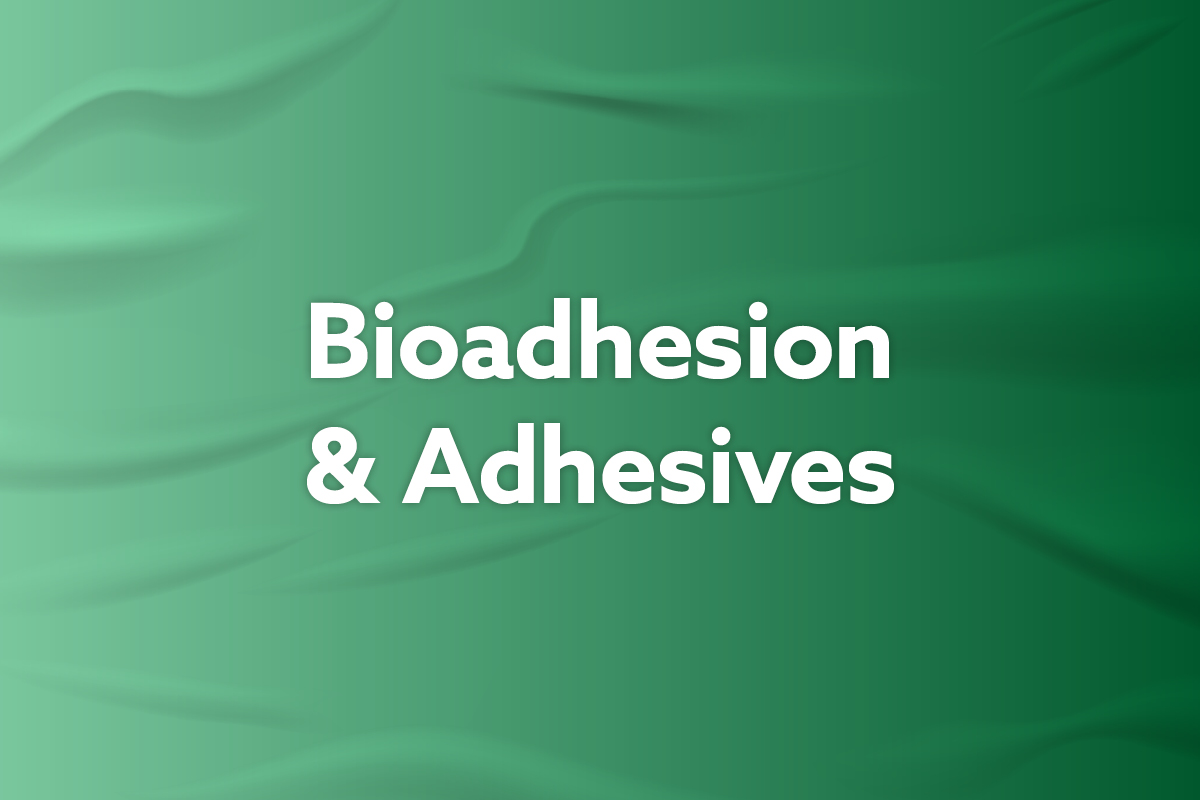Bioadhesion & Adhesives
Event postponed

The 2023 IOM3 Adhesion and Adheives Group winter seminar focuses on bioadhesives and adhesion, offering attendees:
- An overview of the mechanisms used by organisms to achieve adhesion to surfaces.
- An understanding of how nature has evolved a vast range of ‘smart’ materials and is currently an untapped resource for novel biomedical and engineering applications by demonstrating that inspiration for tomorrow’s advanced materials can be found everywhere, even at the bottom of our garden.
- Career opportunities for students, and networking opportunities for attendees.
Highlighting how biological systems achieve adhesion to surfaces, and how adhesives and surface treatments can be made more sustainable by learning lessons from natural solutions. The event will introduce emerging technologies for more environmentally compatible materials and processes. Adhesion can be both beneficial, for example for an animal to climb a vertical surface, and detrimental, for example for biofouling in the marine environment. How to achieve adhesion and how to prevent adhesion will both be considered. Adhesives are extensively used in industry, and understanding how nature achieve strong and durable bonding with minimum energy input can contribute to reducing the environmental impact of these materials.
Programme
The morning session comprises four presentations exploring the fundamentals of bioadhesion, followed by an afternoon of five presentations demonstrating that nature has evolved a vast range of 'smart' materials and providing examples of very early-stage translation potential, plus an insight into an SMEs journey into industrialisation of biotechnology.
- 9.30 Registration and Coffee
- 10.00 Welcome and Introduction Session One - Steve Shaw (Loughborough University)
- 10.05 Transdisciplinary approaches to the study of adhesion and adhesives in biological systems - Nick Aldred (University of Essex)
- 10.35 How do echinoderms attach themselves firmly but temporarily to marine substrates - Patrick Flammang (University of Mons)
- 11.05 Unravelling the secrets of diatom adhesion: From evolutionary adaptations to biofilm formation - Nicole Poulson (University of Dresden)
- 11.35 A novel approach for the identification of cells and genes involved in bioadhesion - Peter Ladurner (University of Innsbruck)
- 12.05 The physical properties and function of the insect pad secretion - David Labonte (Imperial College London)
- 12.35 Discussion and Close of Morning Session
- 12.40 Lunch
- 13.40 Introduction Session Two - Nick Aldred (University of Essex)
- 13.45 Adhesives for entrapment - Paul A Fay (Adhesives Historian)
- 14.15 A sticky situation: The contradictory material properties of snail mucus - Lauren Eggleton (University of Sheffield)
- 14.45 Design, build, test, learn. Growing a start-up commercialising bioadhesion - Martin Challand (Zentraxa Ltd)
- 15.15 Poster Session with Tea/coffee
- 16.15 Cellulose modification of a bio-derived epoxy resin - Ambrose Taylor (Imperial College London)
- 16.45 Effective nanoparticle dispersion in a polymer matrix via modification using a bacteriophage - Edrea Phua (Loughborough University)
- 17.15 Discussion and Close
Fees include coffee, buffet lunch and abstracts. (Please indicate any special dietary requirements).
Speakers
- Steve Shaw, Loughborough University
- Nick Aldred PhD FHEA, Senior Lecturer in Marine Biology, School of Life Sciences, University of Essex, UK
- Prof. Patrick Flammang PhD, Research Director, Research Institute of Biosciences, University of Mons, Belgium
- Nicole Poulson PhD, Marine Phycologist/ Senior Researcher, Centre for Molecular Bioengineering, Technical University of Dresden, Germany
- Paul A Fay, Adhesives Historian, Leigh-on-Sea, UK
- David Labonte PhD, Lecturer at the Department of Bioengineering, Imperial College London, UK
- Lauren Eggleton PhD Candidate, Materials Science and Engineering Department, University of Sheffield, UK
- Peter Ladurner, University of Innsbruck
- Martin Challand, Zentraxxa Ltd
- Prof Ambrose Taylor, Imperial College London
- Edrea Phua, Loughborough University
Who should attend:
- Undergraduate, postgraduate & research (PhD) students. Researchers, engineers & scientists working with bio-derived materials, bioadhesion & biofouling, surface treatments, natural materials, packaging, adhesives & adhesive bonding.
- Marine transport and infrastructure subject to biofouling.
- Industries using adhesives in fabrication, adhesive developers and suppliers, surface treatment developers and users, research organisations working in the adhesion science area.
- Those working in structures for transport applications (e.g. marine), power generation (e.g. wind & tidal turbines), medical & biological applications, as well as non-structural applications such as packaging.
- Those working to consider sustainable development, circular economy, end-of life, reuse and recycling of materials and products.
- Academics, researchers and students who wish to further their careers in the disciplines of biomaterials, sustainable development, adhesion science and adhesives.
For further details please contact:
David Tod
QinetiQ
[email protected]

